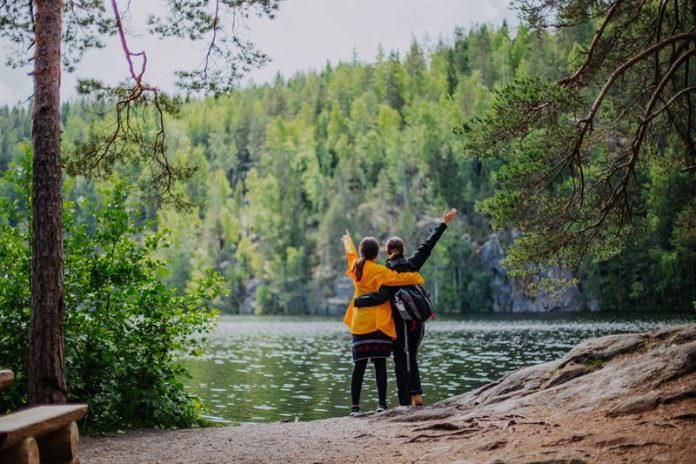For the seventh consecutive year, Finland maintains its title as the world’s happiest country, as per the UN World Happiness Report. What’s the secret behind this enduring happiness? At its core lies the profound trust woven into Finnish society, fostering a sense of security and tranquility among its populace.
Additionally, Finland’s abundant natural landscapes provide a respite from the hustle and bustle, allowing for a profound disconnection and inner peace. This low-stress lifestyle, coupled with the nurturing embrace of nature, serves as fertile ground for creativity, propelling Finland to the forefront of global innovation.
Trust is embedded in Finnish society
The basis for Finland’s consistent #1 position in happiness is explained by the high levels of trust and freedom in its society – which research shows contributes to well-being and productivity. Finland consistently ranks among the best in the world for transparency and the perceived lack of corruption. Finns tend to trust their neighbors, public officials and their government. Finland is ranked highly for political, civil and press freedom. Additionally, both individuals and institutions experience high levels of freedom.
“In a well-functioning, fair and equal society, people can worry less and concentrate on living their lives. Poor life decisions or bad luck don’t necessarily have to mean falling too far behind. To feel safe is one of our primal needs and if we’re not safe, we’re not able to relax into co-creation and innovation,” explains Elisabet Lahti, PhD, applied psychology researcher, author of Gentle Power, and founder of Sisu Lab.
Closeness to nature fosters creativity and innovation
According to the Finnish Happiness Institute (FHI) study, when asking people living in Finland what makes them happy, Finns always mention proximity to nature and the opportunities it offers for recreation and relaxation. In Finland, you are never more than a 10-minute walk from a park or forest. Clean water, unpolluted air and unspoiled nature greatly contribute to wellbeing and happiness – and nurture creativity.
Emma Seppälä, Ph.D., Yale lecturer and bestselling author of The Happiness Track and Sovereign, is specialized in the science of happiness. She highlights a recent study showing that after spending four days in nature disconnected from electronic devices, a group of backpackers scored 50% better on a creativity test.
“As an example, if you think about how much time Finns spend in nature per week, per month, per year, it’s a lot more than that!,” she says, and continues:
“When you are unplugging, your brain is in alpha wave mode i.e., in active problem-solving mode and figuring out innovative solutions. If you want to be more creative, you need to consciously have these times of relaxation in your day. For people living in Finland, that’s what the forest offers – as by the way, does the sauna. Finns’ anti-stress lifestyle is pro-innovation.”
Tap into Finnish happiness – Finland invites collaboration
In the FHI study, one of the most often mentioned factors that affect Finns’ experience as the world’s happiest people is ‘sisu’, a unique Finnish concept combining grit, resilience, and determination. However, according to Lahti, in Finland ‘sisu’ is not just a character strength that contributes to getting things done but denotes an aspiration for quality in how things are done. It impels a kind of integrity-fueled striving toward best possible outcomes across all endeavors, enabling individuals and companies alike to succeed.
As one of the world’s most competitive and open economies, Finland offers an outstanding launchpad for businesses.
Johanna Jäkälä, Executive Director, Finland Promotion Services from Business Finland says:
“The anti-stress lifestyle also influences the Finnish work culture. Finland is a country of low hierarchies, and work-life balance is highly valued. When people come here, they also get access to a kind of lifestyle which is pretty unique. I welcome individuals, as well as businesses, to Finland and to collaborate with Finland, and to tap into the Finnish happiness. We like to think that happiness is good for business and happy employees are productive employees.”

